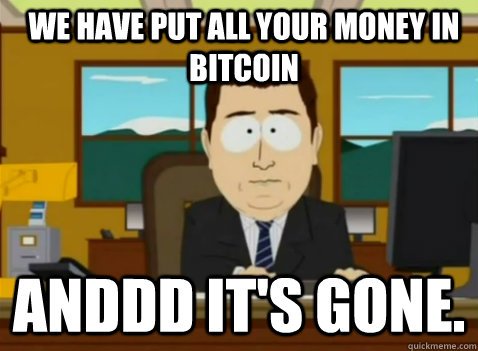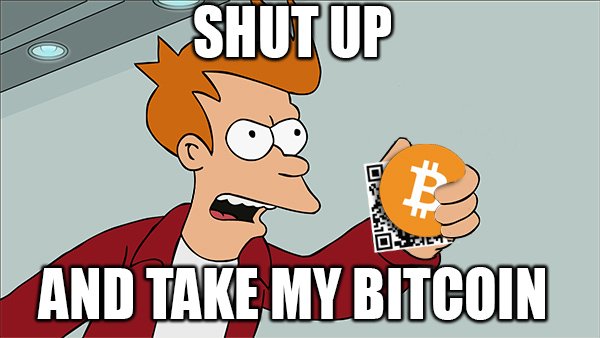This is a series of 3 posts describing the rise of a Shared Prosperity economy enabled by the blockchain.
----
By Edmilson Rodrigues ([email protected])
Initial Coin Offerings or Token Offers are a new phenomenon made possible through the advent of the blockchain technology, which was invented by Satoshi Nakamoto when he/she/they launched Bitcoin.

In a recent article, Delloite arguees that [1] Token Offers are a new paradigm that will disrupt many industries. For Jonathan Chester, Forbes contributor, [2] ICOs are a new way to raise money that in 2017 atracted more capital than traditional venture capital invested in blockchain companies. Some people are pessimistic and [3] see it as one more bubble in the horizon that will wreak havoc the economy and people life´s savings.

But I and the Swapy Network team are optimistic and see the ICOs / Token Offers as the begining of a shared prosperity economic model. But what does shared prosperity mean?
Classical economics is based on the idea that, by individuals pursuing the maximization of the utility of their money while firms pursue the maximization of its profits, the "invisible hand of the market" will provide society´s well being. This is the old economy model and, despite its problems, was responsible for dramatically improving the well being of the average citizen in most countries. See the TED talk below by Peter Diamandis to learn how the world improved from the years 1900 to 2000:
But the advent of the blockchain technology and the rise of Bitcoin and cryptocurrencies showed us the power of decentralization. Now, any organization can issue their own coin/token and create an economy model around the use of its product. Essencially, the power of issuing currency that once was only available to governments, is now available to any group with a few smart people and a good idea. Daniel Jeffries argues that [4] this is the most exciting feature of cryptocurrencies and will give birth to an explosion of innovation as well as an erosion of the power of nation states.
However, the token have as much value as there is utility and demand for it. In March 30th 2010, when Bitcoin was fairly unknown, a [5] user tried to auction 10,000 units for USD$50 and nobody wanted it. As of September 2nd 2017, bitcoin approached the cost of USD$5,000 per unit. The difference between the two dates is that now Bitcoin is accepted worldwide as medium of payment, is recognized as a great store of value and has liquidity in most fiat currencies.

As it happened with Bitcoin, the maximization of my individual profit (in the appreciation of the value of the tokens) is based on the increase of users and transactions in the network. Therefore, to maximize my profits I must generate and share the value to others in the network.
We are witnessing the birth of a new paradigm: Shared Prosperity.
![]()
To ilustrate, in the old economy firms exist to create value and capture it as profits for stockholders. For example, Facebook built a product to allow anyone in the world to create a profile and connect to other users to like, share and comment on their activities. Facebook can be free for the user because, as users click in ads, the company captures this value for their stockholders. Chris Anderson once argued that [6] "Free is the future of prices". But, this is the old economy model.
In the shared prosperity model, the price is better than free because the network pays you for the value you create in it.
That is the case of Steemit.com the website in which you are reading this text. You can earn Steems (its tokens) if other users like your posts or comments. And the Steem tokens have more value as there are users owning and exchanging it.
Suddenly, the network creates a community of users spreading the word about the product because they bought or earned a bunch of tokens and want to see it increasing in value. That is the begining of a virtuous cycle in which the value is not only captured by a central power or authority, but instead, it is shared among the network of users.
It is our understanting that this shift in mindset: Centralization x Decentralization or Capture of value to me x share the value to us, has the potential to change the world for the better.
Stay tuned to learn more in the next posts...
---
Part 1 (this text) is a definition of the concepts behind the shared prosperity model.
Part 2 is a more in depth analysis on how ICOs are changing the economics of organizations.
Part 3 will be how you can get prepared and benefit from the decentralization revolution.
Sources:
[1] https://www2.deloitte.com/us/en/pages/consulting/articles/initial-coin-offering-a-new-paradigm.html
[3] https://www.coindesk.com/25-billion-30-days-cryptocurrencies-bubble/
[5] https://bitcointalk.org/index.php?topic=92.0
[6] https://www.amazon.com/Free-Future-Radical-Chris-Anderson-ebook/